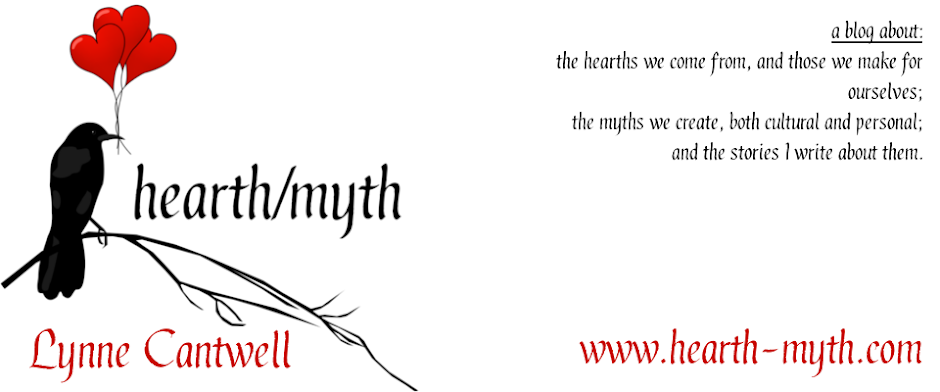First this week, a little news. (I love it when I have news to share!)
1.
SwanSong has been nominated for a Global E-book Award. (Hence, the cool sticker you see on your right.) Next, they pick finalists. I don't know when the finalists are chosen, but there are only three nominees in my category (Speculative - Classic Fantasy) right now, and today's the deadline for submissions, so I'm feeling pretty hopeful that
SwanSong will be a finalist. (There are approximately a blue billion nominees in the Speculative - Paranormal category. Tell me again why my next book is an urban fantasy....) Even if
SwanSong doesn't win, it's pretty cool to be nominated. At the very least, I hope to get a review or two out of the deal.
2. This week, Greta Burroughs kindly posted a guest blog I wrote for her "Did You Know" feature. It's about the genesis of both
SwanSong and
The Maidens' War, and about how I tend to think of them in tandem as my "heritage series".
Here's a link if you'd like to read it for yourself.
Okay, on to the meat of today's post, which first appeared, in a slightly different form, on
Ritesh Kala's book blog a few weeks ago. It's about an epiphany I had not long ago about literary fiction.
Call me slow ("Okay! Lynne -- you're slow!"), but it did not occur to me for a long time
that master’s programs in fiction writing are not interested in turning out
writers who can make a living at writing.
They are focused on turning out writers who can turn out short stories
that their fellow students, and their professors, like. For one thing, short stories lend themselves
much better to workshopping than novels do.
A student might be able to turn out a respectable first draft of a novel
in a semester, but she cannot do it and also read and critique the novels of
the other nine students in her class – not to mention keeping up with the work
in her other classes and with whatever is going on at home. So for workshops, short stories it is. But the marketplace for short stories is
miniscule compared to the amount of decent material students are turning
out. So many perfectly good stories will
never be published.
For another thing, as I mentioned a couple of weeks ago, writing
students and their professors consider themselves to be serious writers, and as
such, they like to read serious fiction.
Oh, word play is fine, and maybe even humor, depending on the subject
and how it’s handled. But mostly, these
serious writers want
to read about people a lot like themselves – usually urban, mostly white,
almost painfully introspective. It’s
okay for the characters to talk about sex, as long as they spend most of their
time ruminating about it rather than doing it.
In fact, it’s almost better if nothing happens in the story at all. The writer needs to set the scene, of course
– otherwise the characters would have nothing plausible to trigger their
ruminations. But the characters are
under no obligation to learn anything about themselves, or to behave any differently
at the end of the story than they do at the beginning. And in addition, everything must be as realistic as possible.
Now, as you may have noticed, I write
fantasy. But fantasy was not what my classmates wanted to read, and
when I tried to give it to them, they didn’t seem to know what to do with
it. At the same time, the professors
praised the work of students who wrote realistic fiction, and had us read
realistic fiction (except for a couple of works of magic realism, from which I
concluded that the only difference between magic realism and fantasy is the
foreign accent – but that's another blog post). The
message we all received was that realistic fiction – literary fiction – was the
only kind worth writing; anybody who wrote anything else was a sellout and a
hack.
Now, I knew that wasn’t true.
I had read enough speculative fiction to know that much of it was as
well-crafted as any realistic novel, and it was fun to read, to boot. But to please my fellow students and my
professors, I tried writing realistic fiction anyway. People seemed to like it, more or less, and I
got good grades. I thought, okay, maybe
they’re right. Maybe this is the best
kind of writer to be.
So after graduation, I began sending stories to fiction magazines. That’s when I found out how small the marketplace
for realistic fiction really is. I began
to understand why every realistic novel I’d ever read had a sentence in the
author’s bio along the lines of, “[Name of author] teaches writing at [name of college].” The only way these writers could make a
living was to teach more students to write realistic fiction.
Over the next few years, I was able to put my unsatisfactory "realistic fiction" past behind me. But then recently, a poet friend wrote something that made my brain go click (thanks, lucimay!). What she said was
this: literary fiction is just another
genre. It’s realistic, the characters
are introspective, and nothing much happens in terms of plot. It’s just another formula, neither better
nor worse than the formulas that drive mysteries and speculative fiction and
all the other genres. Oh sure, they try
to convince everyone that they are the Only Serious Writers. But they’re wrong: every genre has literary-level writers, and
even those who write realistic fiction can be hacks.
I've felt much better ever since.


